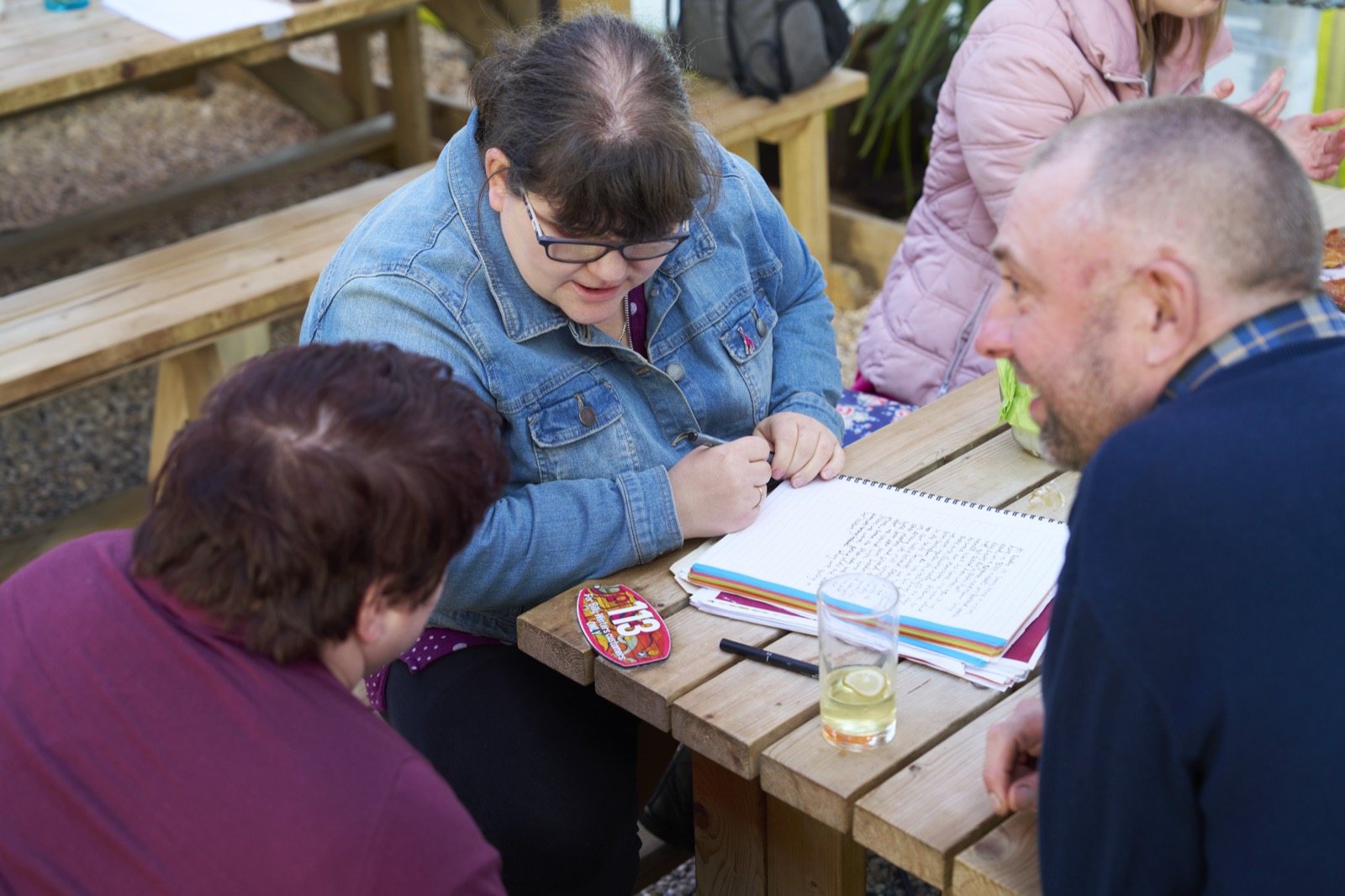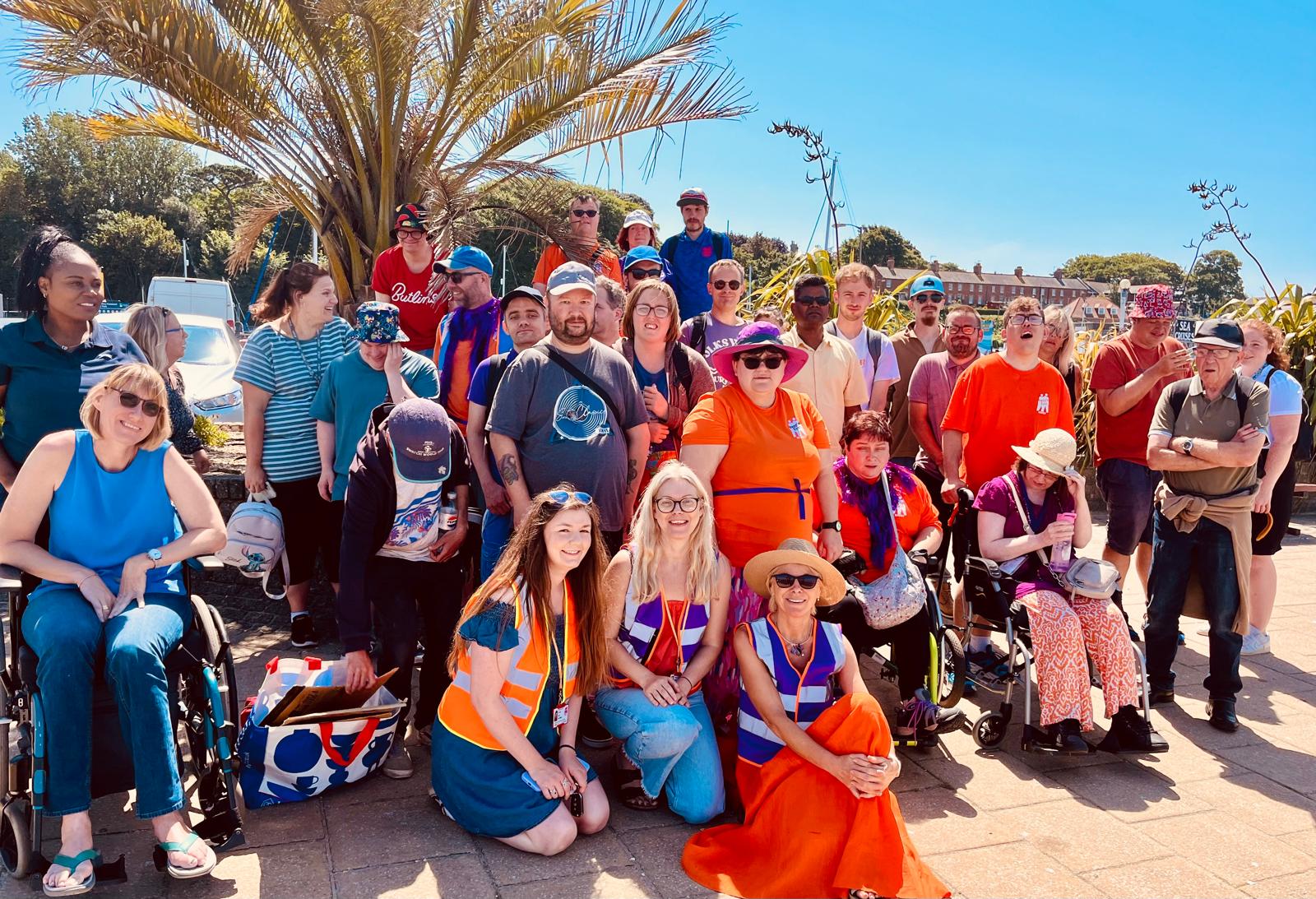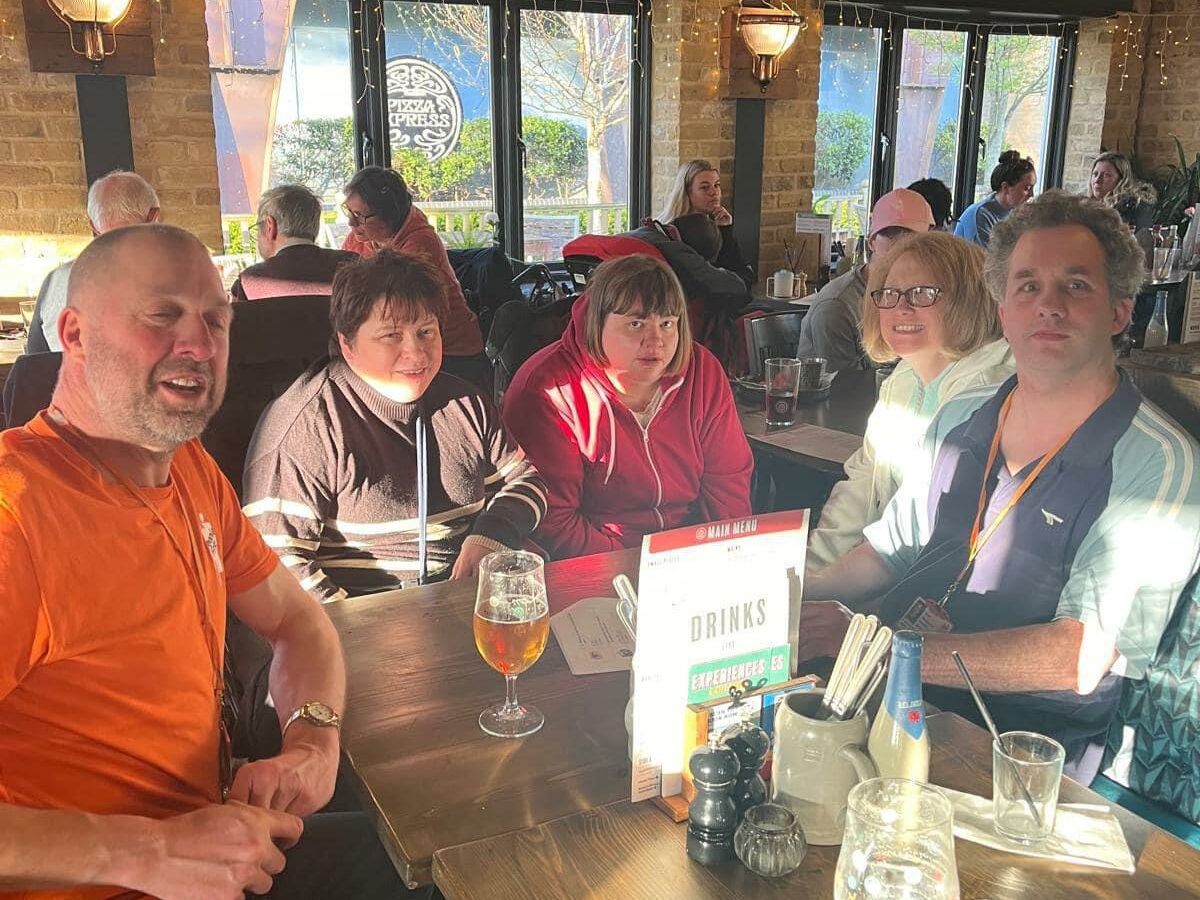Fish and chips on the beach in Weymouth. A scavenger hunt in Borough Gardens, Dorchester. Learning to play tennis, kick-boxing, cricket and other sports in local clubs. A quiz and food in a pub.
These are among the events held by People First Dorset (PFD) Friendship Club this year. A previous highlight was a Glitter Ball at the National Sailing Academy in Weymouth.
PFD, where I am a trustee, started as a self-advocacy group in 2004. In 2008, the charity launched the Friendship Club, as it had become clear that many people with learning disabilities often felt isolated. People wanted friends to meet socially for a couple of hours and to do things that others take for granted.
Members are aged 18 and over, and numbers vary from 10 up to 90. Events are generally free and people can bring a carer. Club members grow in confidence; they can then join PFD’s Speaking Up groups and develop their self-advocacy skills.
William Parmiter joined the Friendship Club in 2008: “I used to go to the local bowling centre to drink beer and try to meet people, but just became lonelier because I didn’t know how to make friends.
“My community nurse suggested I try this new friendship club, and I have never looked back. I now have lots of friends. I meet up with them outside People First Dorset activities. I really feel I am part of the community.”
Since 2015, Parmiter has written a weekly column in the Dorset Echo with fellow PFD members Kerry Martin and Emily Burr (pictured right). All three are members of the PFD management committee.

“I write the column each week about anything and everything,” he says. “Politics, Brexit, prison, accessible spaces, friendships during Covid, running the world and the environment to smelly jobs, kindness, lying, litter, losing things, designing a supermarket and sandwich fillings.”
Parmiter, Martin and Burr, along with a local illustrator, are writing the story of Susie, a cat who likes to travel around Dorchester. The aim is for the book to be out this year.
PFD has a four-strong staff team, one of whom has a learning disability. There is one full-time employee who does not have a learning disability; the other three are part time. PFD also has six regular volunteers who support the club’s events and activities.
The management committee meets bi-monthly; all eight members have a learning disability and they work alongside seven trustees, one of whom has a learning disability, to ensure the charity is user led.
My involvement began when I moved to Dorset in 2015. I contacted PFD after hearing of it while co-director of the Foundation for People with Learning Disabilities. I was chair until 2019, then became a trustee.

In the lifetime of our younger son, Pete, who had Down syndrome and never used words, we saw how friends were important to him. I describe this in my book, The Joy of Knowing Pete previously featured in Community Living (winter 2023).
Securing ongoing funding, as with other charities, is a big concern as PFD seeks to continue and develop its work and support members to address the inequalities they experience.
Charities like ours are crucial in promoting wellbeing, responding to concerns and often needing to signpost members to sources of help. Such benefits are difficult to quantify but are so important.





